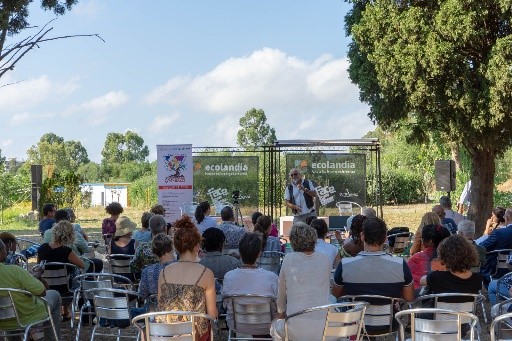We Are Community
Fiona Kendall serves with Mediterranean Hope, Italy.
Dear friends,
This letter comes to you from Calabria, that ruggedly beautiful region in the toe of Italy that was once part of Magna Grecia and is today one of the country’s most fertile – and yet poorest – territories. As many of you will know, Mediterranean Hope has a small team based in Calabria, where we are supporting agricultural workers who are exploited in the production and harvest of the region’s outstanding fruit. Whilst here, my guide has been Ibrahim, who hails from the Ivory Coast but has been living and working in Calabria for around a decade, ultimately as an intercultural mediator and social worker with Mediterranean Hope. It has been a privilege to get to know him.
Ibrahim, like our colleague Francesco Piobicchi, is an artist as well as an activist. Words rather than images are Ibrahim’s preferred medium for communicating what he sees and feels. His poetry, currently published in Italian and French, movingly recounts his own experience of being a migrant, as well as attesting to the world’s attitude to migration which is, so often, bewilderingly negative. Ibrahim’s book, “Yen Fehi, Bako” (Over There on the Other Side of the River Bank) opens with the following words:
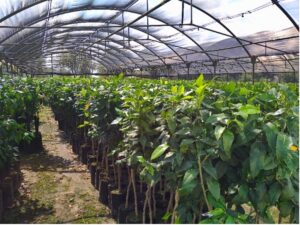
“These poems are dedicated to all my brothers who have left their families and loved ones in search of Happiness but today encounter difficulty in integrating into the society which receives them.”
In the space of one sentence, Ibrahim succeeds in shining a spotlight on the conundrum of migration, which, almost inevitably, necessitates sacrifice and risk, dreams of something better but relies on the goodwill of others in order to be truly successful.
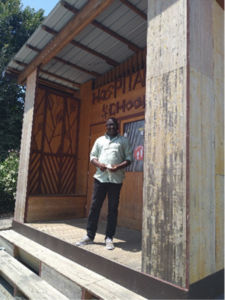
The personal motivation, tenacity, and energy of migrants will only take them so far. Unless they are truly welcomed, there can be no real integration. This causes me to reflect on the responsibility that each of us has to the other and the small but important steps which each of us can take, both personally and as a community, to be welcoming. How often do we actually consider the perspective of those outside our own circle or community? How often do we consider the effect that our action (or lack of action) has on the stranger in our midst? This is not simply a question of policy or law – although these things matter greatly – but also of personal engagement.
The reason for coming to Calabria now, rather than in the autumn or spring when the fruit is harvested, was an unexpected invitation to speak at “Last 20,” a conference being held at different points in the year in different Italian towns, the first of which was this meeting in Reggio Calabria. This year, Italy has the presidency of the G20 and will be hosting meetings with representatives from the world’s twenty richest nations. The premise of L20 is that the perspective of the world’s twenty most impoverished nations should also be heard, hence the series of meetings on different themes, beginning with migration.
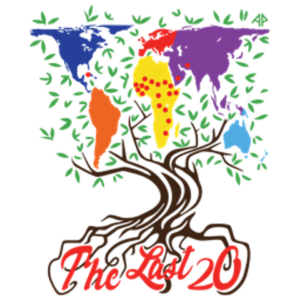
Quite apart from the rich experience of hearing these other perspectives, it has been unexpectedly moving to attend this four-day event in person after eighteen months of virtual participation in meetings. It seems that I had forgotten what a simple pleasure it is to share a coffee, a meal, a comment, or a conversation with people not in my closest circle. Whilst virtual encounters have meant so much in this past eighteen months and, without doubt, have their own efficiency, they are, in general, intentional and the parameters often prescribed. This meeting has reminded me of the relational shorthand of the casual encounter, the speed with which connections can be made and points of view discerned and shared through direct interaction. It has been one of the most chaotic yet delightful experiences I have had to date.
It has also been a sharp reminder, at a geopolitical level, of the impact which we have on one another. The L20 countries are far from poor in terms of natural and human resources, yet the plunder continues. The action and inaction of the world’s richest continue to generate conflict and poverty. Little wonder that people continue to flee and to seek better lives.
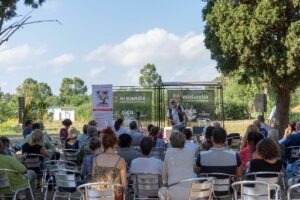
We are a community. And community exists at every level of our existence, transcending personal and national boundaries. Whether we like it or not, our lives are interlinked. The opinions we voice – or support – and the action we take – or do not – matter. That means that every one of us has an opportunity to make a difference to individuals we do not even know. Ibrahim, who has suffered much, is a living example of someone making a difference. For a glimpse of his own story and the work he is doing with Mediterranean Hope in Calabria, check out the Mediterranean Hope YouTube channel.
Let me conclude this letter by asking, if you are willing, for your prayers. These, and all of the support and encouragement you offer, are very much appreciated.
- for those daring to start a new life in a country that is not their own, that they may find a welcome in every person and situation that they encounter;
- for those places in the world which are scarred by poverty and conflict, that they may be supported in finding and maintaining stability;
- for those fighting for justice and equality, that they may dream and be heard by those with the power to bring about change.
Fiona Kendall serves with Mediterranean Hope, Italy. Her appointment is made possible by your gifts to Disciples Mission Fund, Our Church’s Wider Mission, and your special gifts.

